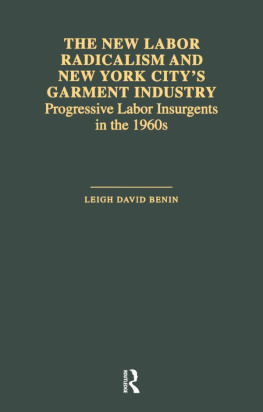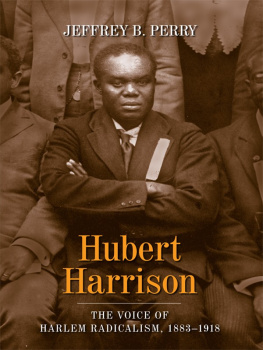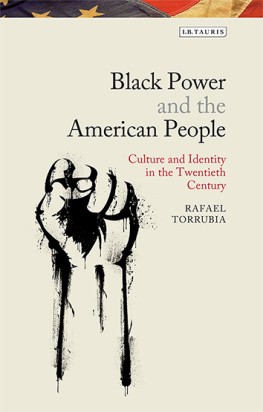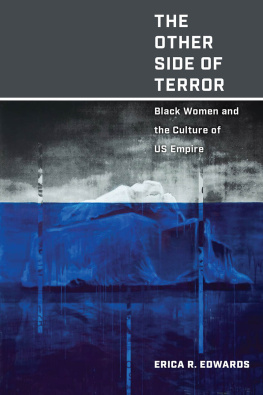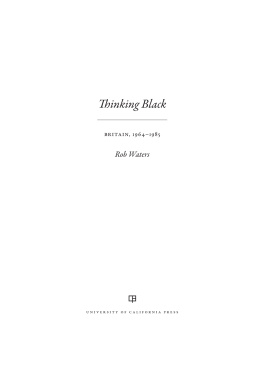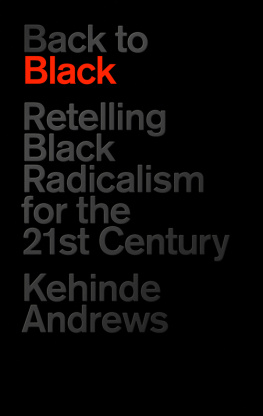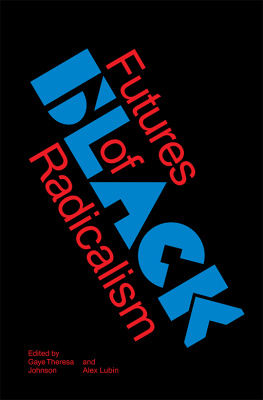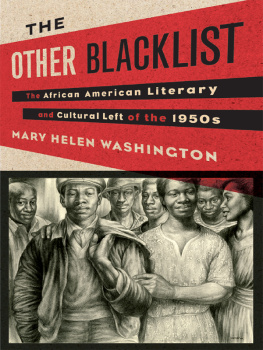Margaret Walker Alexander Series in African American Studies
Cover illustration by Elginia McCrary. For more images, please contact .
The University Press of Mississippi is the scholarly publishing agency of the Mississippi Institutions of Higher Learning: Alcorn State University, Delta State University, Jackson State University, Mississippi State University, Mississippi University for Women, Mississippi Valley State University, University of Mississippi, and University of Southern Mississippi.
www.upress.state.ms.us
The University Press of Mississippi is a member of the Association of University Presses.
Copyright 2019 by University Press of Mississippi
All rights reserved
Manufactured in the United States of America
First printing 2019
Portions of previously appeared as Cultivated Desire: Black Womens Work in George Wylie Hendersons Ollie Miss, Southern Quarterly 51, no. 3 (2014).
Library of Congress Cataloging-in-Publication Data
Names: Taylor, Christin Marie, 1982 author.
Title: Labor pains : New Deal fictions of race, work, and sex in the South / Christin Marie Taylor.
Description: Jackson : University Press of Mississippi, [2019] | Series: Margaret Walker Alexander series in African American studies | First printing 2019. | Portions of previously appeared as Cultivated desire: Black womens work in George Wylie Hendersons Ollie Miss, Southern Quarterly 51, no. 3 (2014). | Includes bibliographical references and index. |
Identifiers: LCCN 2018047467 (print) | LCCN 2018053741 (ebook) | ISBN 9781496821799 (epub single) | ISBN 9781496821782 (epub institutional) | ISBN 9781496821812 (pdf single) | ISBN 9781496821805 (pdf institutional) | ISBN 9781496821775 (hardcover : alk. paper) | ISBN 9781496824073 (pbk. : alk. paper)
Subjects: LCSH: African Americans in literature. | African AmericansFiction.
Classification: LCC PS173.N4 (ebook) | LCC PS173.N4 T39 2019 (print) | DDC 810.9/96073dc23
LC record available at https://lccn.loc.gov/2018047467
British Library Cataloging-in-Publication Data available
Acknowledgments
To teach and write about literature for a living is a labor of privilege and love. This privileged labor is only made possible through the generous fellowship, resources, and support of a network of teachers, mentors, colleagues, family, and friends. I am fortunate to have such a group of committed and caring individuals in my life. Their contributions have been integral to this book. My work is possible because of their work.
A word of thanks seems insufficient to express my gratitude to my mentor and teacher Dr. David Wyatt. He has unselfishly shared his vast knowledge of American literature, and he has given me advice and guidance throughout the writing process. Thank you for encouraging me to sit with the unconventional nature of my book from its beginnings. You teach and inspire me to let the texts speak for themselves, to let them reveal their secret histories, and to let them show us how to read them. To Dr. Wyatt, thank you for your time and for your work. I am unendingly grateful for your support.
I am also grateful to Dr. Mary Helen Washington for her dedication to scholarship on African American literature and the literary Left. Thank you for your insights into the twentieth-century formations, influences, and significances of black radical traditions. I appreciate Dr. Zita Nunes for sharing her knowledge of racial discourses in African American and diasporic literatures and their intersections with feminist and postcolonial contexts. Thank you for your work and for counseling and supporting me in the profession. I must also thank Dr. Carla Peterson. She has been influential in her wisdom about the continued significance of W. E. B. Du Bois as well as nineteenth-century African American literary formations.
I am thankful for Dr. Ira Berlin. I appreciate his belief in me and his support of my work. His passion for social history inspires me to seek the knowledge and power of seemingly marginal voices, and his passing marks the loss of a great scholar and a kind soul. I hold in loving memory his generosity, his grace, and his spirit.
I am grateful for Dr. Lisa Woolfork. Her courses were my first introduction to African American literary traditions and her teaching over the years helped crystalize my love of black women writers and African American womens literary traditions. I also appreciate Dr. Harriet Pollack for her unselfish support of my work on Eudora Weltys fiction and for including me in forums on Welty and race. Thank you so much for your encouragement.
I thank the National Agricultural Library for granting me access to their George Washington Carver papers and the National Archives for their assistance. I must also thank Ms. Schuyler Allen, relative of George Wylie Henderson, for her time. And thank you to Mr. Joseph Kaye, husband of Sarah Elizabeth Wright, for your unapologetic investment in furthering the appreciation for your wifes work.
Many thanks to the anonymous reviewers of this book for their feedback. Words cannot convey my gratitude for the openhandedness of an anonymous reviewer who offered comments on my manuscript and shared a breadth of knowledge about African American literature and black radicalism. I would also like to thank Ms. Diane Ross for her editorial suggestions on my previous article on George Wylie Hendersons Ollie Miss, which is now a part of this book. Additionally, I thank Ms. Lisa McMurtray of the University Press of Mississippi for interacting with me throughout the editorial process and Mr. Joseph Muller for his careful copyediting and attention to detail. I am tremendously appreciative of Mr. Vijay Shah of the University Press of Mississippi for his support of this book from its earliest stages. Thank you for your ongoing interest in this project and for opening the opportunity for me to publish with your press.
I am deeply moved by the fellowship of colleagues, friends, and family who so readily offer up a place of refuge for my weary feelings. I am grateful to the research and writing group at Shenandoah University for their collegiality, celebration, and commiseration. I appreciate the support of Deans Jeffery Coker and Cindia Stewart of the College of Arts and Sciences at Shenandoah, and I am grateful for the mentorship, support and friendship of the former chair of the English Department, Dr. Michelle Lynn Brown.
I feel revitalized by the company and counsel of my friends Wende E. Marshall, Laura C. Williams, Kara A. Morillo, and Ayla Olson. Dr. Marshalls anthropological research on the agency and resistance of dispossessed communities inspires me and informs the fiber of my work. You were the first professor to mentor me and to cultivate my interest in social justice and the power of black radical traditions. Thank you for your labor, teaching, mentorship, nurture, and faith. To Drs. Williams and Morillo, I am grateful for your knowledge and camaraderie. Laura, thank you for reading my work, offering feedback, and sharing your depth of understanding of African American literary formations of the Cold War era. Kara, thank you for your lens into feminism and gender studies. To Ayla, thank you for believing in me when at times I dont believe in myself and for always rejuvenating my enthusiasm for this work. Marshall, Kara, Laura, and Ayla, you enrich my thinking, but most of all I am thankful for your friendships.


